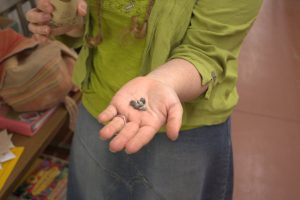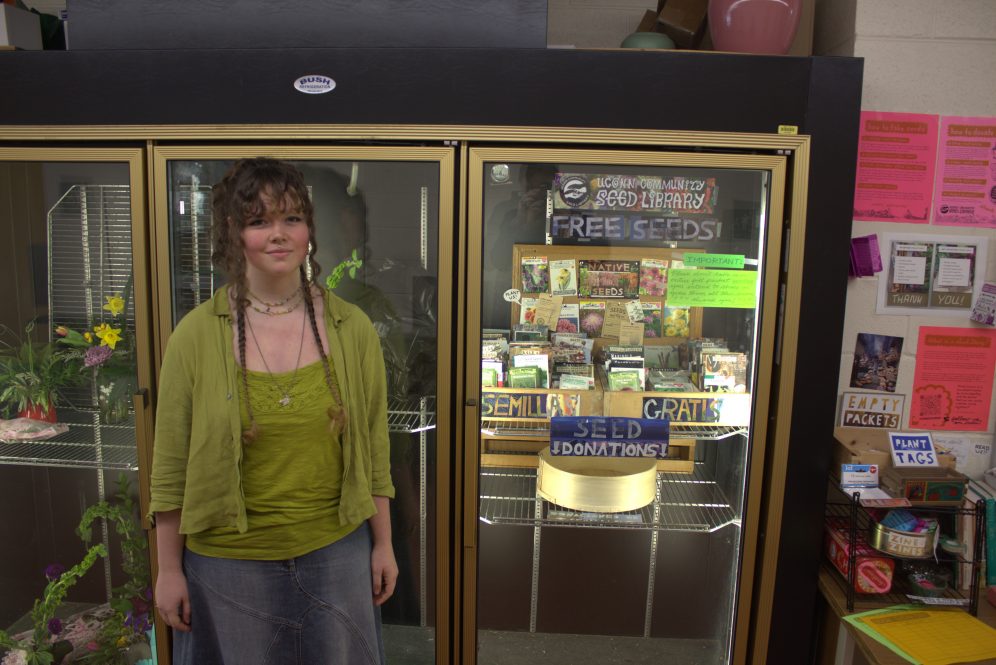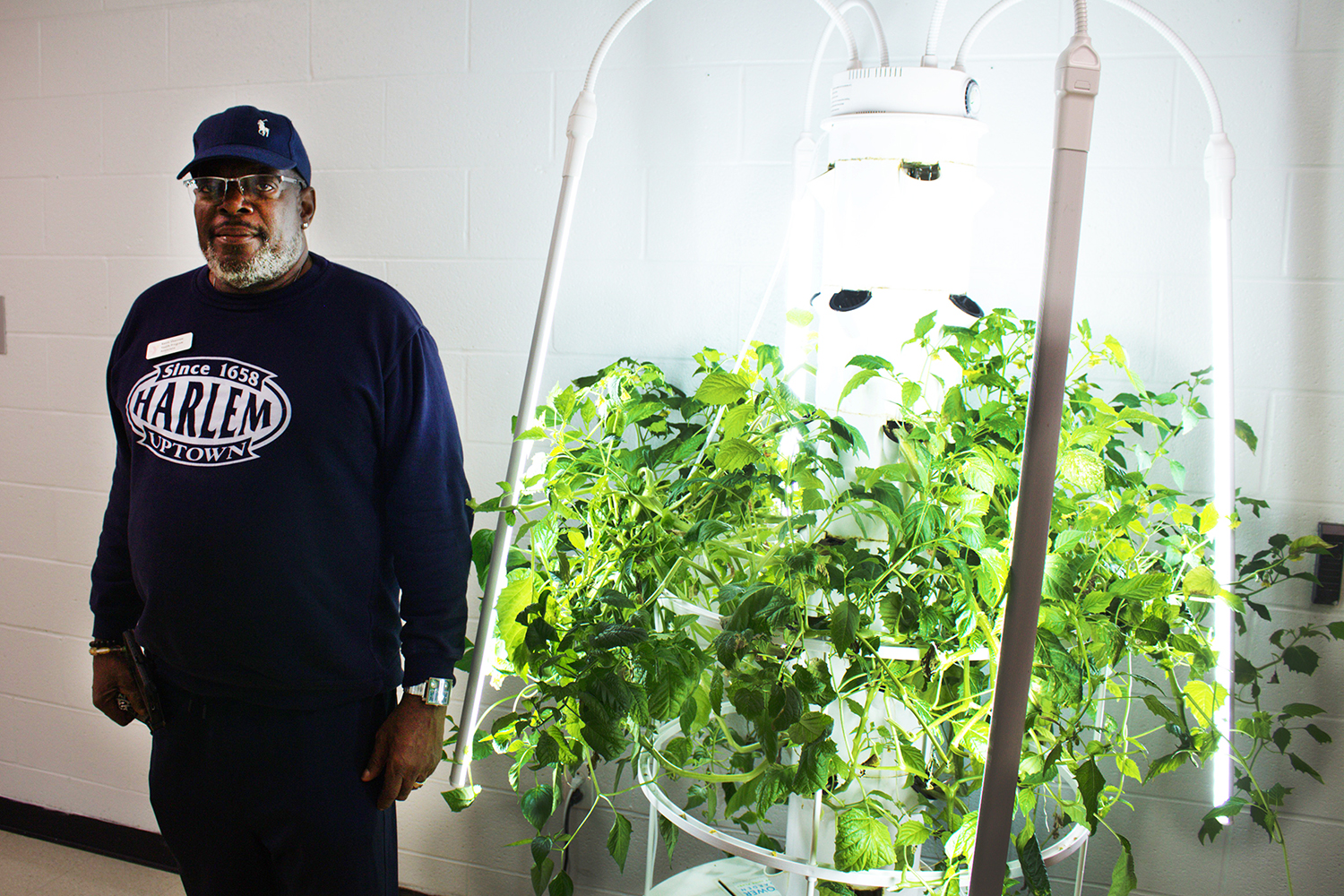A senior at UConn is making strides to combat food insecurity in Storrs with a free seed library.
“Food insecurity is kind of crazy high in all college student populations,” says Iris Armstrong ’25 (CAHNR), who goes by Iris. “At UConn, as well as in our surrounding community, it’s pretty significant. My first goal was to combat food insecurity through connecting people with the resources they need to grow their own food.”

Iris, a landscape architecture major, started the seed library during the fall 2024 semester thanks to an Environmental and Social Sustainability Grant (ESSG) from the Office of Sustainability. It is located in the lobby of the Floriculture Building.
The seed library is open to anyone in the UConn community whenever the building is open, typically 8 a.m. to 4 p.m. It remains open during the summer months.
There are a variety of seeds available, primarily for edible plants, mostly vegetables. “We also have some flowers. I’m trying to get a good selection of native flowers because that’s really important as far as the role of seed libraries in promoting biodiversity,” says Iris. She secured donations from seed companies and is working with local farms to source more.
Along with seeds, Iris collected supplemental resources. There is literature with information on seed saving, food justice, gardening, agricultural policy and food assistance programs including UConn Swipes and The Husky Harvest Food Pantries. “I used some of the grant funding to buy some great books,” says Iris. “They’re kind of like the Bibles of seed saving.”
Seed saving is the practice of saving seeds from plants you grow, so you can grow a new plant the following year. “It saves you money, it keeps you from becoming dependent on seed corporations and it helps you grow better plants,” Iris says.

She is hoping that the seed library can continue to grow after graduation. “I really want to see it grow as an educational space,” says Iris. “I’d like to tie it more into the food justice and food sovereignty side of things, I want it to be more political.” She says she also wants to make the space multi-lingual to increase accessibility.
Iris has been working on setting up workshops at the Spring Valley Student Farm so people can learn how to save seeds with a hands-on approach. Another idea is to implement seed saving walks around campus. “I’ve taken a lot of seeds from perennial plants around campus. It’s like an infinite plant hack,” says Iris.
When it comes to information on how to start a garden, Iris says, “Don’t come to me for advice, go to the UConn Home and Garden Center, and UConn Extension. They’re amazing, everyone should go talk to them.” These programs can help community members with any questions once they get started at the seed library. “They’ll get you connected with soil testing, guides to growing and tons of cool information,” she said.
“I’m hoping that having a place on campus where you’re able to get the seeds you need, the pots you need, and also connect with the other resources you need to grow your own food will help people become more familiar with the process of growing food, and raise awareness for food insecurity on campus,” says Iris.
Keep up with the work of the seed library on Instagram: @UConnSeedLibrary



